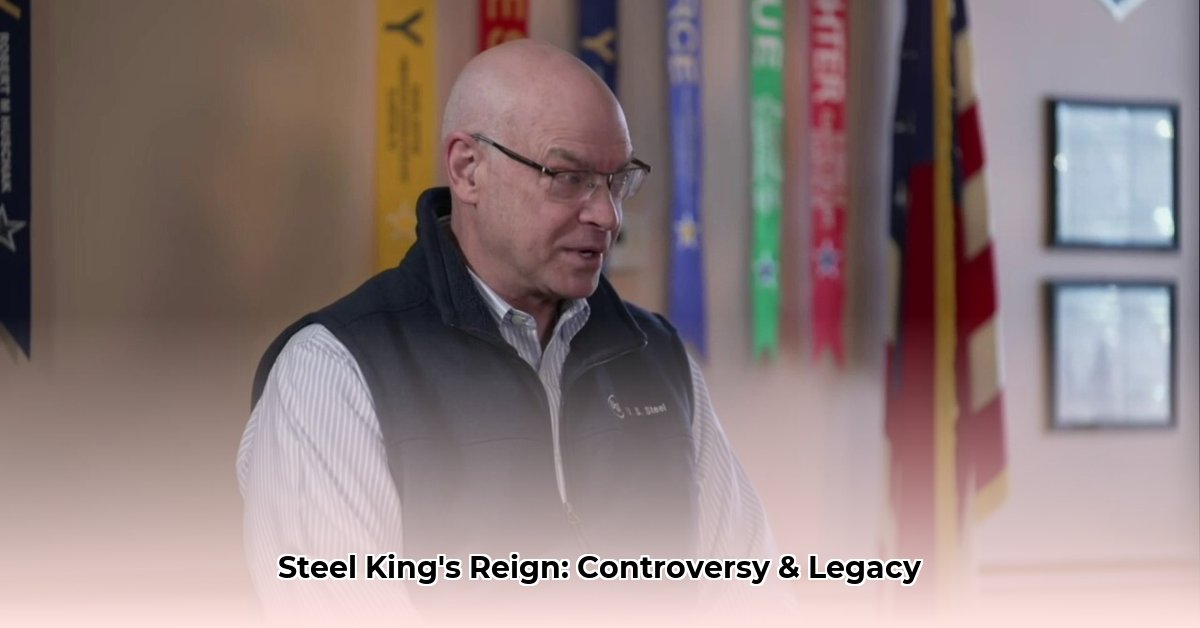
David Burritt: A Legacy of Modernization and Controversy
David Burritt's tenure as CEO of U.S. Steel was marked by a bold vision for modernization and sustainability, punctuated by a highly controversial sale to Nippon Steel. This analysis examines the complex interplay of his initiatives, their impact on various stakeholders, and the lasting implications for the American steel industry.
Modernization Initiatives: A High-Stakes Gamble
Burritt spearheaded a significant investment program aimed at modernizing U.S. Steel's operations. This involved substantial capital expenditures, including $60 million for Gary Works upgrades and $150 million at Keetac, alongside the reopening of Granite City Works and the acquisition of Big River Steel. These moves, intended to enhance production efficiency and competitiveness, represented a high-stakes gamble on the future of the company. Did this strategy ultimately succeed? The subsequent sale to Nippon Steel raises questions about the long-term viability of his approach. While some argue these investments were essential for survival in a dynamic market, others view them as ultimately insufficient to secure U.S. Steel's long-term independence.
How did such a substantial investment impact the company's bottom line? A detailed financial analysis comparing pre- and post-investment performance indicators is essential for a comprehensive evaluation.
Environmental Stewardship: A 16% Reduction and a 2050 Goal
Burritt prioritized environmental sustainability, resulting in a notable 16% reduction in greenhouse gas emissions between 2018 and 2021. This commitment was further demonstrated by the issuance of green bonds to finance sustainable projects, notably the expansion of Big River Steel, and the introduction of verdeX™ steel, a lower-emission product. The company even set an ambitious goal of carbon neutrality by 2050. However, the inherent tension between environmental responsibility and the economic realities of steel production remained a significant challenge. The full environmental impact of Burritt's actions, particularly considering the scale of the company's operations, requires further in-depth study. Was the 16% reduction sufficient given the industry's overall environmental impact?
Labor Relations: A Complex and Contentious Picture
While Burritt successfully negotiated a four-year contract with the United Steelworkers union in 2018, the subsequent sale to Nippon Steel severely strained labor relations. The union expressed deep concerns regarding job security and benefits, arguing that their interests were overlooked during the negotiations. The perceived lack of transparency fueled this discontent. This highlights a critical challenge in balancing shareholder value with the well-being of the workforce – a key aspect of Burritt's leadership requiring careful evaluation. What specific measures were taken to mitigate the impact on worker's rights and benefits during the transition?
The Nippon Steel Sale: A Financial Windfall and a Political Firestorm
The sale of U.S. Steel to Nippon Steel, though yielding a substantial $55 per share return for shareholders and a $70 million bonus for Burritt, ignited a significant controversy. U.S. Senators raised concerns about potential conflicts of interest, sparking a national debate about foreign ownership of strategically important industries. A presidential executive order temporarily blocked the acquisition, underscoring the significant political ramifications. Did the short-term financial gains justify the potential long-term risks to national security and economic independence? This remains a key question dividing opinions. What specific steps were taken to ensure the deal aligned with the interests of American steel workers and national security?
Key Takeaways from Burritt's Tenure
- Ambitious Modernization: Burritt invested heavily in upgrading U.S. Steel's facilities, aiming for increased efficiency and competitiveness.
- Sustainability Progress: Significant reductions in greenhouse gas emissions were achieved, demonstrating a commitment to environmental responsibility.
- Controversial Sale: The sale to Nippon Steel triggered significant political and labor concerns, overshadowing other achievements.
These points highlight the complex and often contradictory nature of Burritt's legacy, requiring a nuanced understanding to fully assess his impact on U.S. Steel and the broader American steel industry. Further research is needed to fully understand the long-term effects of his decisions.